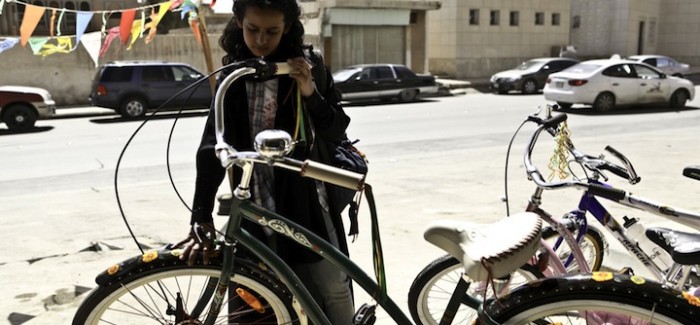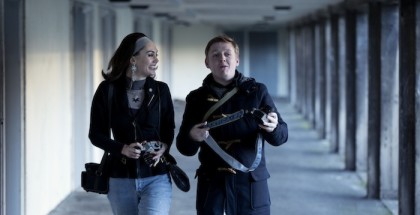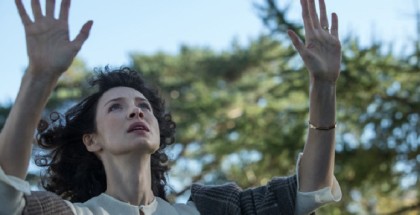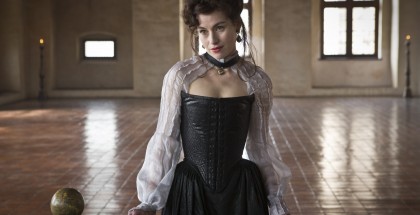VOD film review: Wadjda
Review Overview
Acting
10Direction
10Importance
10David Farnor | On 27, Nov 2013
Director: Haifaa Al-Mansour
Cast: Reem Abdullah, Waad Mohammed
Certificate: PG
Every now and then, a film comes along that changes the world. Sometimes, you don’t even realise it’s doing it.
Wadjda is the first feature film to be shot entirely in Saudi Arabia. It’s directed by a woman – the country’s first female director. Amazingly, though, that’s not the most remarkable thing about it. A short and sweet story, it follows the young Wadjda (Mohammed), an unruly girl in a buttoned-down society. She doesn’t cover her hair. She wears purple trainers to school. She plays hopscotch in the street long after her friends have fled the gaze of nearby builders.
“Wadjda! Go inside!” orders her teacher. “Don’t you realise there are men who can see you?” The teacher misses the point: she realises. She just doesn’t care.
The one thing Wadjda does care about, other than her mum? Getting enough money to buy a bicycle so she can race her best friend down the street. It’s a scandalous, unladylike ambition – and she doesn’t give two hoots. It’s an incredible performance from Waad Mohammed, whose boisterous charm is impossible to resist. She strolls around with a cheeky grin, raising her eyebrows, Macauley Culkin-style, and making jokes about her teacher.
Haifaa al-Mansour deserves endless credit for teasing such a natural performance out of her talented lead. Filming in a country where cinema is banned and women are forbidden to go out without a male guardian, Haifaa spent half of the external shoot hiding in vans and giving instructions by walkie-talkie. Not that you would know from her unfussy visuals. Everything is captured with a low-key, childlike intimacy and a minimum of on-screen chaos; just the act of Wadjda riding a bike in the road, or even entering the bicycle shop, feels like a huge event.
Halfway through, our adorable rebel changes her colours, falling in line and joining the school’s religious club – a decision that still manages to kick social conformity firmly in the teeth. “If you set your mind to it,” advises Wadjda’s devoted mum (an equally understated Reem Abdullah), “you can achieve anything you want.” It’s a touching piece of daughterly advice, which deliberately doesn’t draw attention to any wider social significance. That’s Wadjda in a nutshell; a straightforward tale of one irrepressible child – but, like Abbas Kiarostami’s Where Is The Friend’s Home?, that quiet simplicity speaks volumes.
A film from a country where, at the time of its release, it would never be shown, the very fact that Wadjda exists is inspiring. That it’s fantastic to boot makes it a pure joy.



















